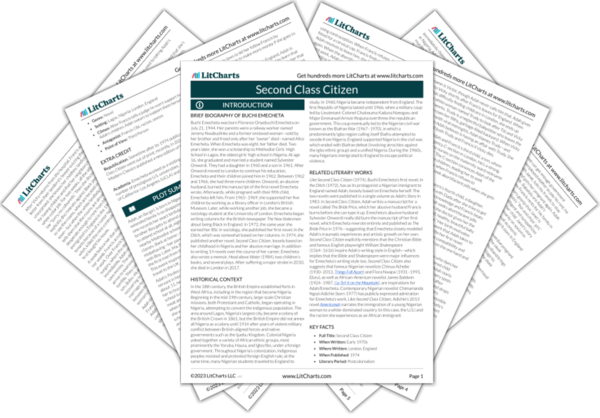In Genesis 3:24, an angel with a flaming sword or a “sword of fire” guards the gates to Eden (paradise) after the first man and woman, Adam and Eve, are expelled for sinning. While Adah receives emergency medical treatment, she dreams that Francis is a “sword of fire,” hinting that she subconsciously knows he is a barrier to her achieving her goals (or, figuratively, “entering paradise”). Yet her second dream reveals that she still wishes that Francis would succeed, love her, and appreciate her. She also wants their children to have “high-class” educational opportunities (Eton is perhaps the most prestigious all-boys boarding school in England.)
